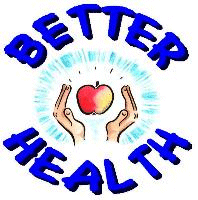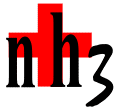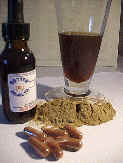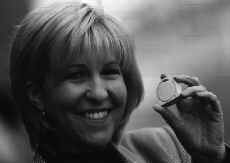HOME
|
Herbal Medicine in the 21st Century Herbal Medicine has a strong tradition in Britain, with 1000's of years of practice leading up to the 21st century. Herbal Medicine today is very different to that practiced in the past. And it looks to be changing drastically over the next few years. In some respects Herbal Medicine has progressed to its current modern practice; in other respects it has regressed. The regression of Herbal Medicine has been largely due to the development of drugs in modern orthodox medicine, and many of the traditional therapies and herbal medicines have been discarded as drugs have commanded the mindset of scientific doctors who demand chemical purity and precise proof of efficacy for their medicines. In other respects Herbal Medicine has regressed due to the influence of health food shops, chemists, and even supermarkets, which have mass-produced certain herbal concoctions based on popular traditional herbs. This dilutes their effect, and weakens the reputation of Herbal Medicine proper. Preparations purchased over the counter in a shop is not what Herbal Medicine is about. It is much more than that. Indeed Herbal Medicine has progressed greatly over the centuries, and no less so over the last few decades. More research has been carried out to demonstrate the effectiveness of herbs, to analyse their active (and non-active) constituents, and a greater understanding has been achieved of many herbs from other continents that are being gradually integrated into modern herbal practice. There has also been a development in the understanding of disease processes, and new applications developed for individual herbs based on this new knowledge. In this respect Herbal Medicine is making far greater inroads into the treatment of many modern chronic conditions than orthodox medicine. Herbal Medicine has far more to offer those suffering with conditions such as Irritable Bowel, Chronic Fatigue, Migraine, Eczema, Psoriasis, Menstrual or Hormonal problems, and even others such as chronic cardiovascular conditions such as Hypertension or Hypercholesterolaemia, or auto-immune conditions such as Arthritis, Inflammatory Bowel Disease, Asthma, or other systemic diseases such as Systemic Lupus. It is also extremely useful in dealing with conditions such as Back Pain, Sprains and Strains, and other painful conditions. Additionally, it is far better equipped than orthodox medicine in dealing with acute illnesses such as coughs and colds, viral respiratory tract infections, cystitis and many other self-limiting conditions. It may also be far better in dealing with nervous conditions such as Stress, Anxiety, and Depression or sleep difficulties. The strength of Herbal Medicine, however, is in the individual approach to each patient, rather than a wholesale (or health food shop) approach to each condition. There is no single remedy for arthritis, for example, but many herbs that may be combined together for the individual. Each patient should be assessed thoroughly by a practitioner of Herbal Medicine, who will then tailor his or her herbal prescription accordingly. Suitably qualified practitioners of Herbal Medicine should be registered with the National Institute of Medical Herbalists (NIMH). The NIMH makes rigorous demands in terms of training and qualification of practitioners before they can become registered. Practitioners may use the designated letters MNIMH to denote membership. But what of Herbal Medicine in the future? Developments in the European Community threaten to make herbs less available in the future. This is largely due to the inappropriate use of herbs purchased over the counter, without consultation with an herbal practitioner. The development of retail sales of herbs has seen a disturbing development of herbal ‘extracts’ as opposed to the use of the whole herbs themselves. Herbal extracts have been modified, adapted to increase the concentrations of certain known chemical constituents at the expense of others. These are not true herbs, but are a pharmaceutical development of herbs, not exactly into drugs, but alarmingly towards drugs. This development has led to a number of serious side-effects with many ‘herbs,’ such as Kava kava, which has been almost withdrawn from sale due to these problems. Herbal extracts of kava have been linked to a number of cases of liver failure, particularly in Germany and the USA where the use of herbal extracts is far greater than in the UK. In fact, in the UK, there has been no documented problem with the use of Kava by medical herbalists. Most medical herbalists do not use herbal extracts, and also tailor their herbal prescriptions to include a number of herbs usually. If during a consultation is was thought that there was a risk of liver problems, then liver protecting herbs would be used in addition to kava, limiting the chances of causing problems. However, due to the lack of understanding of Herbal Medicine by the establishment, the lack of control over the use of herbs by retail distributors such as health food shops, and the lack of recognition of practitioners of Herbal Medicine as distinct from other practitioners in Complementary and Alternative Medicine, the Medicines Control Agency has the role of controlling the availability of herbs. As a result, many herbs may be considered unsafe for general sale, and may be classified as medicines, limiting their use to medical doctors, who have no training in Herbal Medicine. Even herbal practitioners would then be unable to use those herbs! The NIMH is working towards the proper statutory regulation of herbal practitioners. This would enable the MCA to consider limiting the use of herbs to herbal practitioners as opposed to medical doctors. This would mean that certain herbs would no longer be available at health food shops and other outlets, but they would then be available through registered herbal practitioners. This will strengthen the position of herbal practitioners and Herbal Medicine as a whole, as patients will then be assured of the best possible advice and recommendation in the use of herbal medicines. Sadly, this is not always the case at present, as the sale of herbs in health food shops and supermarkets continue to generate vast profits for the retailers, but often give purchasers lesser value for money and poorer results from their treatment than can be achieved by Herbal Medicine proper. Therefore our advice is always to: a) Avoid the use of herbal extracts in general, and b) Always seek the advice of a suitably qualified and registered herbal practitioner prior to starting a course of treatment with herbal medicines. © Better Health Limited 2002 |
0800 980 3447 |






